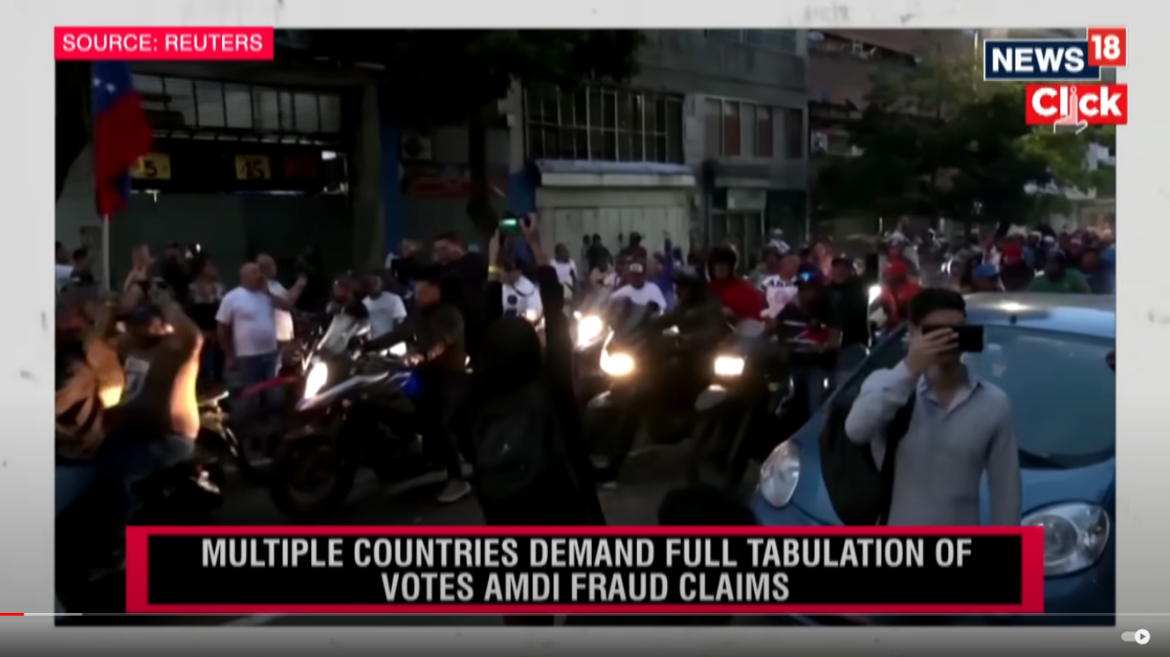Venezuela is engulfed in deadly protests as President Nicolás Maduro claims victory in Sunday’s election amid allegations of voter suppression and fraud. The National Electoral Council has certified Maduro’s reelection to another six-year term, with official results showing him winning 51% of the votes compared to 44% for opposition candidate Edmundo González Urrutia. However, this outcome is highly contested, with an exit poll conducted by US firm Edison Research indicating that González actually led by more than 30 percentage points.
Violent protests have erupted across the capital, Caracas, in response to the election results. Far-right mobs have blocked major roads, including those near the Simón Bolívar International Airport, and have attacked buses, police cars, and members of the security forces. The unrest is fueled by the opposition’s refusal to recognize Maduro’s victory, leading to widespread chaos and violence.
South Florida Congressman Mario Diaz-Balart has voiced strong criticism of the Biden administration, blaming it for easing sanctions on Venezuela and thus contributing to the current turmoil. Diaz-Balart argues that the administration’s policies have emboldened Maduro’s regime, exacerbating the crisis in Venezuela. He urges the Biden administration to apply more pressure on the Venezuelan government, warning that the chaos could have implications for U.S. national security.
Secretary of State Antony Blinken has expressed “serious concerns” about the election results, reinforcing suspicions of electoral fraud. Blinken’s statement underscores the U.S. government’s apprehensions about the legitimacy of Maduro’s reelection and the integrity of the electoral process in Venezuela.
As protests continue to rage, the international community is closely monitoring the situation. The violence and instability in Venezuela raise significant humanitarian and geopolitical concerns, with potential ripple effects throughout the region.



